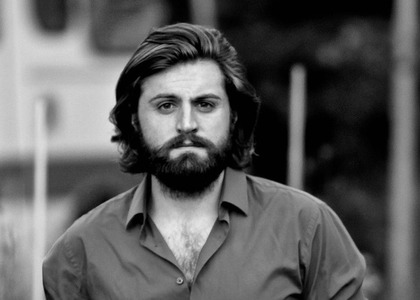> [Archived] Interviews

Interview with baritone Konstantin Krimmel
Baritone Konstantin Krimmel is one of the best musicians of our time. He's 30 and has already performed on the greatest stages of the world, has collaborated with famous musicians and has several appreciated discographic albums. Between 2021-2023 he has been one of the musicians included as part of BBC's New Generation Artists scheme, which helped him on 6th February, 2023, perform a recital in London, at Wigore Hall. The recital consists of lieds by Schumann, Mandicevski and Brahms and it is live broadcasted by our radio. Considering this occasion,I took the opportunity to find out more about the German-Romanian baritone. And I was surprised to discover that he speaks also Romanian, even though he is born and raised in Germany. I present you a fragment from our telephonic discussion which was conducted in Romanian, not in German, as Konstantin required.
I'm glad to hear you and thank you very much for accepting to talk to us, Konstantin! So you present yourself as a German-Romanian baritone and I wanted to ask which is your Romanian side?
My mother is from Romania. She's from Petrești - Sebeș, Alba.
But you were raised in Germany.
Yes. I was born and raised in Germany and I have been to Romania during every summer school break, winter break, Easter break, for almost 18 years. I have been to Romania with my family for a long time. We didn't travel too much around the word, but we always visited Romania and it was wonderful.
That's why you also speak Romanian.
Yes, I do my best.
Are your parents musicians as well?
They aren't. Both have an ear for music and good voice. My grandfather played in Petrești's fanfare, but as far as I'm concerned there is no one in our family to have sung and that's why I don't know where my type may come from. Maybe it's my grandfather.
Or, I think, it may be also the fact that you were born and raised in Germany, one of the most important countries when it comes to classical music, and surely one of the most important when it comes to lied. What do you think?
It is possible, why not? I sang a lot in the boys' choir when I was 16 years old, and I played the piano, bassoon. I've created a lot of music throughout my life. I started with choir at the age of 5. I began studying very late. I think I was 21 when I started studying singing in Stuttgart. I didn't really want todo that before. Music had been a hobby during my life and I didn't really want to make this hobby a serious thing, with exercises at home, with playing the piano or voice every day. I didn't want to...
...to make a profession out of music.
Yes. And I was in the army and during that time I discovered that something was missing in my life. And that was music. In the army I didn't have time and I didn't have the opportunity to make music, to sing, and I discovered that something was missing in my life. After my time in the army, I sang for a year in the choir at the Theater in Ulm (I was born in Ulm) and that was, somehow, the beginning. Many people told me, even the choir director, that I have a good voice, a beautiful voice, to try to go to University and make something out of it.
That's exactly what you did!
Yes, I studied for 8 years.
I have to say I've been listening to everything I've found signed by you and I'm very, very impressed. You clearly differentiate between opera singing, on the opera stage, and chamber singing, of a lied. What exactly differentiates the opera voice from the lied voice?
I don't think there are two different voices. I think you have to like the lied song, sing very intimately, maybe just for yourself or just for 50 people. In an opera house with 2000 people, in Munich, you must have a minimum volume in your voice, so that the people who are a little further back in the audience can hear you. I really like it when the halls are not so big, and that's why I can play the piano more than at the opera. And, moreover, I can discover a lot of colors that come to me in the moment of creation, discover the text as well. In lied you don't just sing the melody and only the notes, you have to sing the text; and the text is very intimate - it's about love, and death, and all kinds of emotions. It's also very loud, hard, but also very intimate... and you have to discover the voice to sing very intimately. You need a very good technique to sing the lied and to interpret the lied the way you want, but somehow I think you have to like the lied, to play the lied. The difference from lied to opera for me is not very big, it's only the volume of the voice.
Translated by Mara-Sabina Rolea,
University of Bucharest, Faculty of Foreign Languages and Literatures, MTTLC, year II
Corrected by Silvia Petrescu














